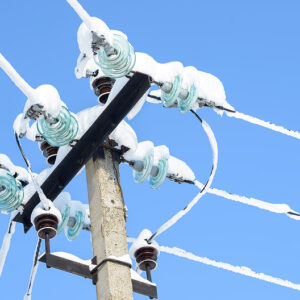The soundbites and images were startling. Blackouts. Burst pipes. People dead from extreme cold and carbon monoxide poisoning. This week marks one year since the coldest weather in generations hit Texas.
A year later, energy policy experts in Pennsylvania and across the nation are looking for lessons to be learned from those failures.
“There were multiple errors, but green energy failed at a critical time, and we no longer had fossil fuels and baseload power systems to back them up,” says H. Sterling Burnett, Ph.D., a Texan serving as senior fellow on environmental policy for the Heartland Institute.
“What led to the crisis and the blackouts is 20 years of bad policies pushed by politicians on both sides of the aisle from Washington, D.C. and here in the state of Texas that were propping up one form of unreliable variable generation over another, which is good natural gas and clean coal thermal generation that has been diminished because of these market-distorting policies, subsidies if you will,” said Jason Isaac, a four-time Texas state representative now serving as director of Life: Powered at the Texas Public Policy Foundation (TPPF).
“That’s why we’ve seen this incredible growth in this variable generation that’s now a third of our grid in the state of Texas in wind or solar that we’re dependent on when the wind blows or the sun shines, and there’s no backup generation requirements for those sources of electricity generation,” he said.
Solar was virtually non-existent in terms of electricity generation at the time of the storm. Wind dropped to 1.5 percent of the electric generation.
“It’s, again, 33 percent of our grid,” said Isaac. “That’s unbelievable, and over 90 percent was coming from the other 66 percent of the grid, natural gas, coal, and nuclear.”
“There’s a reason we never had something like this before in the middle of winter,” said Burnett. “That’s because we never had so little reliable baseload power as part of our system.”
It should serve as a wake-up call for other states, especially at a time when federal and state legislators are pushing the Green New Deal and related measures.
“The national takeaway on the crisis that we experienced in Texas, the energy capital of the world, if you will, is that we need good, reliable natural gas, coal, and nuclear,” said Isaac.
The Sunrise Movement, a youth movement to “stop climate change and create millions of good jobs in the process,” sees things differently. Sunrise said in an email it is “building an army of young people” to make climate change an urgent priority across America.
“(We want to) end the corrupting influence of fossil fuel executives on our politics, and elect leaders who stand up for the health and wellbeing of all people,” according to its website.
And Sunrise has its eyes on Texas, where a primary election is scheduled for March 1.
“We have an opportunity to send our own — Jessica Cisneros and Greg Casar — to Congress to fight for us and win a Green New Deal,” Sunrise said in an email to supporters. “Republicans, corporate Democrats, and Big Oil want you to forget what happened one year ago in Texas, but we’ll never forget.”
Pointing to the remarks from Sunrise, Isaac said they are laughable at best.
“The Green New Deal is about controlling everything we do in our lives and increasing the cost of energy, and expensive energy hurts the poor more than anyone else,” said Isaac. “If we had the Green New Deal here in Texas, our electric bills would be triple what they were, the reliability of electricity would be laughable, and deaths last year would have been much more horrendous than they already were.”
“Sunrise wants to double down on the policies that created the very problem,” said Burnett. “We had 200 people die last year during this weather.”
The indoor temperature of Burnett’s home was in the 50s after he lost power.
“The Sunrise Movement wants more wind and more solar, and that’s great, unless the wind stops blowing like it did last February and snow falls and covers all your solar panels,” said Burnett. “To be fair, the wind came back up, but by then, the turbines had frozen, (and) you don’t want turbines turning on and throwing icicles across highways.”
Isaac holds firm to his position on the need for natural gas, coal, and nuclear energy.
“Wind and solar is habitat and environment destroying technology that increases the cost of electricity, does nothing to improve the environment, and just winds up hurting the poor most,” says Isaac. “It increases the unreliability of our grid and the instability.”
It was a close call in Texas last year, one that should cause other states to wake up to what Isaac calls a “cult-like fascination with decarbonized electricity.”
“We were nearly four minutes away from a complete grid collapse because renewable energy was not producing any electricity,” says Isaac. “That would have been completely devastating to Texas. We would still be rebuilding today. Millions of people would have fled the state because of this, and just thousands of people would have died.”
“ERCOT (Electric Reliability Council of Texas) made some terrible decisions,” says Burnett. “After the power outage, they wanted to get the lights on immediately, so they said, ‘natural gas plants, you have to ramp up,’ but then they cut off power to switching stations for natural gas and for storage for natural gas, so there was no power heating the pipelines or the switches and the plants were using gas at an enormous rate, and those pipelines and switches froze.”
“That would not have happened with a coal plant because coal typically has six months of capacity sitting around in a stockpile,” says Burnett. “They’re not going to run out if the switching stations freeze, but those coal plants had closed, so there were multiple errors.”
Follow us on social media: Twitter: @DV_Journal or Facebook.com/DelawareValleyJournal

